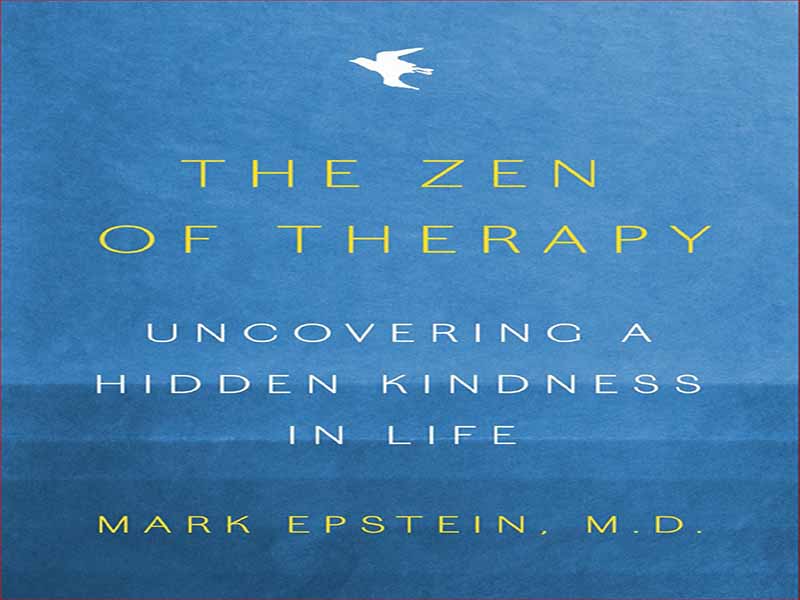- عنوان کتاب: The Zen of Therapy
- نویسنده/انتشارات: Mark-Epstein
- حوزه: روان درمانی
- سال انتشار: 2022
- تعداد صفحه: 327
- زبان اصلی: انگلیسی
- نوع فایل: pdf
- حجم فایل: 2.93 مگابایت
بودا، قبل از روشن شدن، توسط پدرش از دیدن پیری، بیماری و مرگ پس از مرگ غیرمنتظره مادرش یک هفته پس از تولدش محافظت شد. او پس از ازدواج و داشتن فرزندی از خود، در دههها بعد، سرانجام به یک فرد بیمار، یک فرد مسن و یک جسد برخورد کرد و با واکنش وحشتناک، به سرعت آسیبهای دوران کودکیاش را با رها کردن خانواده دوست داشتنی خود و جستجوی آزادی (یا فرار) تکرار کرد. ) از طریق فعالیتهای معنوی موجود در زمان خود. بودا پس از گذراندن چندین سال آینده در جنگل برای یافتن کمک معنادار، از تمرین خودباختگی به عنوان وسیله ای برای بیداری که مدت ها به دنبالش بود، استفاده کرد. قبلاً در هند باستان یک سنت زاهدانه قوی وجود داشت و بودای مشتاق، در جستجوی بی وقفه خود برای آرامش درونی، ریاضت را به عنوان مطمئن ترین روش جدا کردن خود از بدن و ذهن کاملاً انسانی خود می دید. پر از انزجار و نفرت از خود، مانند بسیاری از افراد متنفر یا شرم آور عصر خودمان، برای مدت طولانی تلاش کرد تا با چشم پوشی عمدی از هر نوع لذت، خود را از خود دور کند. او در این کار بهتر از هر کس دیگری بود تا اینکه در نقطه انقراض خود (مانند مبتلایان به بی اشتهایی امروزی که به طرز غم انگیزی و قهرمانانه از گرسنگی میمیرند تا زمانی که اعضای بدنشان شروع به از کار میکنند)، این تصور را داشت که چیزی در ابتدای کارش اشتباه است. رویکرد خاطره ای نامعلوم از خودش به ذهنش خطور کرد که پسر جوانی بود که با شادی زیر درخت سیبی رز نشسته بود در حالی که پدرش در دوردست مزارع را شخم می زد. او از این خاطره غافلگیر شد، اما از اینکه چقدر احساس ناراحتی در او ایجاد کرد، متعجب شد. او متوجه شد که از چیزی می ترسید که خاطره به ذهنش خطور کند، از شادی که زمانی احساس کرده بود. چرا؟ او تعجب کرد. چرا این خاطره دقیقاً در این لحظه به وجود آمده بود و چرا باعث ترس او شد؟ پاسخی خود به خود به ذهنش رسید، نمونه اولیه قدرت تداعی آزاد. او به دنبال خوشبختی و آزادی خارج از خودش بود، فهمید، زمانی که، شاید، فقط شاید، از قبل در او بود، همانطور که در زیر درخت رز-سیب زمانی که او پسر بود. این احتمال او را آزار داد و او شروع به سرگرم کردن جدی کرد. او با خود فکر کرد: “شاید من کاملاً اشتباه کرده ام.” “شاید من سعی می کنم چیزی به خودم بگویم. آیا روشنگری که من در جستجوی آن هستم می تواند در این جهت، به سوی شادی به یاد ماندنی دوران کودکی من دروغ بگوید؟ این برخلاف همه چیزهایی است که من فکر می کردم، هر چیزی که فکر می کردم. به همین دلیل است که شادی من را میترساند: مجبورم میکند در کل جهتگیریام تجدید نظر کنم.» بودا با لذت بردن از خاطره و روشن شدن درک جدیدش، قدردانی کرد که با بدنش چنان لاغر، هیچ راهی برای حمایت از چنین احساس شادی وجود نخواهد داشت. او به این نتیجه رسید که اگر قرار بود درک خود را جدی بگیرد، بهتر است چیزی برای خوردن پیدا کند.
The Buddha, before his enlightenment, was protected by his father from ever seeing old age, illness, and death after the unexpected passing of his mother a week after he was born. Upon marrying and fathering a child of his own decades later, he finally chanced upon a sick person, an old person, and a corpse and, reacting in horror, quickly replicated his childhood trauma by abandoning his own loving family and seeking freedom (or escape) through the available spiritual pursuits of his time. After spending the next several years in the forest searching for meaningful help, the Buddha seized upon the practice of self-mortification as the vehicle of his long-sought awakening. There was already a strong ascetic tradition in ancient India, and the aspiring Buddha, in his relentless search for inner peace, saw austerity as the surest method of detaching himself from his all-too-human body and mind. Filled with disgust and self-loathing, like many a self-hating or shame-filled person of our own era, he tried, for a long time, to remove himself from himself by deliberately renouncing all forms of pleasure. He was better at this than anyone until, at the point of selfextinction (much like modern-day sufferers from anorexia who starve themselves, tragically and heroically, until their organs begin to fail), he had an inkling that something was wrong with his basic approach. An unbidden memory came to his mind of himself as a young boy sitting joyfully under a rose-apple tree while his father plowed the fields in the distance. He was taken by the memory but surprised by how uncomfortable it made him feel. He was afraid of something that the memory brought up, he realized, frightened of the joy he had once felt. Why? he wondered. Why had the memory come at this precise moment, and why did it make him feel afraid? An answer came spontaneously to his mind, an early example of the power of free association. He had been seeking happiness and freedom outside of himself, he grasped, when, maybe, just maybe, it was already in him, the way it was under the rose-apple tree when he was a boy. This possibility nagged at him and he began to entertain it seriously. “Perhaps I’ve been going about this entirely wrong,” he thought to himself. “Maybe I’m trying to tell myself something. Could the enlightenment I am seeking lie in this direction, toward the remembered joy of my childhood? That would go against everything I’ve been thinking, everything I have thought. That’s why the joy frightens me: it’s forcing me to rethink my entire orientation.” Savoring the memory and brightened by his new understanding, the Buddha appreciated that with his body so emaciated, there would be no way of supporting such a joyful feeling. If he were going to take his realization seriously, he concluded, he had better find something to eat.
این کتاب را میتوانید از لینک زیر بصورت رایگان دانلود کنید:
Download: The Zen of Therapy





































نظرات کاربران